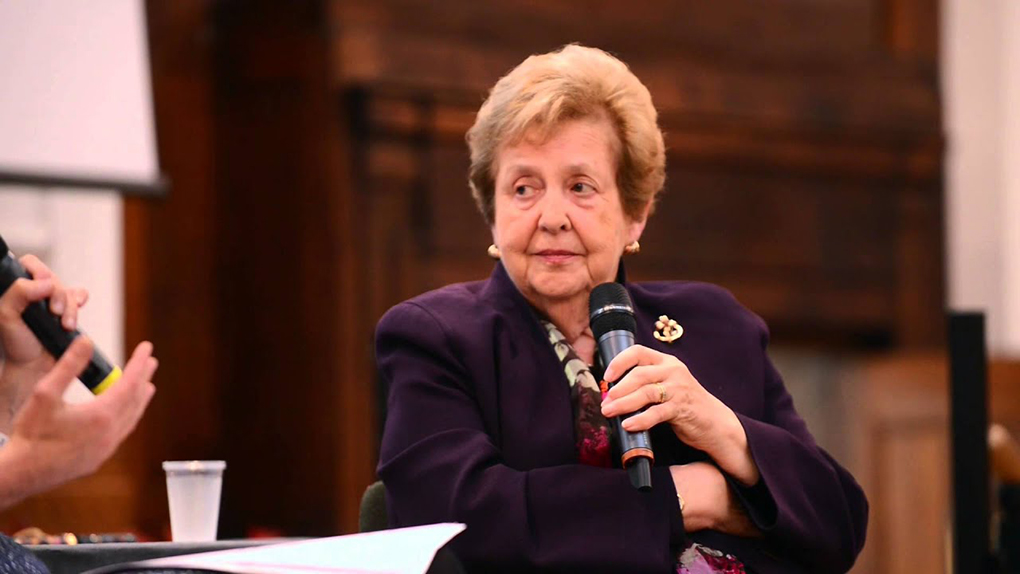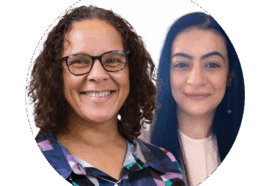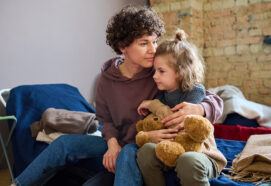To celebrate International Women’s Day we caught up with ACAMH’s longest serving female member, retired child and adolescent psychiatrist, Dr Dora Black, who joined ACAMH in 1965. Dora is the co-founder of the Traumatic Stress Clinic, London, and a world-renowned expert on child bereavement and trauma.
Dr Dora Black’s medical career nearly didn’t happen.

It was 1950 when she applied to med school — and 21 schools rejected her.
“They only took a few women and your father had to have been a doctor. My father was a businessman.”
An interview with the dean of the since defunct Middlesex Hospital was particularly memorable, epitomising the attitudes of the time.
“The dean and I were getting on famously but at the end of the interview, he said: ‘Your father is a doctor, isn’t he?’ When I said, ‘no’, he got up, shook my hand and said: ‘My dear girl, and you’re expecting to get into medicine? Goodbye!’ It rankled with me —the rejections were a sort of challenge.”
Such resolve has fuelled a long and impressive career.
After graduating from University of Birmingham Medical School, Dora trained in psychiatry at the Maudsley Hospital, London. As a consultant child and adolescent psychiatrist she founded the Children’s Trauma Clinic at the Royal Free Hospital in London, and the Traumatic Stress Clinic in central London — the UK’s first trauma centre.
Although best known for her work with traumatised and bereaved children, particularly where one parent kills the other, she was also at the vanguard of liaison child psychiatry.
In 1960, in need of mental stimulation while on maternity leave with her first child, Dora volunteered to sit in on the paediatric out-patient clinic at the Whittington Hospital, London.
“I decided I didn’t have enough paediatric knowledge. As it turned out, quite a few cases in the paediatric clinic had a psychiatric aspect, so I put my two-penn’orth in.”
Dora’s input led to the appointment of the hospital’s first child psychiatrist — a rarity at the time, as most hospitals did not have child psychiatrists.
In 1968, by now a mother of three, Dora served as Edgware General Hospital’s first child psychiatrist and again set about forging a relationship with the paediatric department.
The Platt Report (1959) had recommended women be allowed to stay with their babies in hospital — something that wasn’t happening at Edgware General.
“I set about changing that. I got a local manufacturer to donate reclining deckchairs to the children’s ward so that mothers could stay the night with their babies.”
Her liaison work, along with later establishing a joint academic chair between the Tavistock Clinic and Royal Free, are some of many achievements overshadowed by Dora’s groundbreaking work with bereaved and traumatised children.
Dora, an early member of the Institute of Family Therapy, first encountered bereaved children in the 1960s whilst running a monthly meeting for widowed mothers. It became clear that while the mothers were being supported, the children were largely ignored.
“A lot of the children were having all sorts of problems that I thought might be helped by family therapy.”
In 1987, as a consultant child psychiatrist, Dora published her first paper on her research in the JCPP: “Family Intervention with Bereaved Children”1
By now, Dora had encountered a number of children where one parent — typically the father — had killed the other.
She recalls, through the use of play-therapy, watching a young child repeatedly hammering a doll.
“She was showing us what had happened. She couldn’t put it into words. She needed someone to tell her so that she could begin to process it. It’s words of process — you can’t process it unless you can understand it.”
In 1988, Dora published a paper on the impact of intra-parental killing.2
“No-body else had described it. When we published this paper, there were 28 cases. We searched the literature to see if anyone had written about this before and there was only one paper with two cases.”
In 1993 she co-authored the book: ‘When Father Kills Mother’.3 Referrals poured in from across the country, which prompted her to set up the Children’s Trauma Clinic at the Royal Free. By 1995 the clinic moved to central London to become the Traumatic Stress Clinic.
During her career, Dora and her team treated around 700 children where one parent had killed the other.
A regular ACAMH participant, she retired fully in 2014, having worked in an honorary consultant role as an expert court witness at the Traumatic Stress Clinic since 1997.
“I’ve had a wonderful career and wouldn’t have missed it for the world,” she says.
Aged 87, Dora has taken up piano lessons.
References
1Family Intervention With Bereaved Children. D.Black and M A Urbanowicz. J.Child Psychol. & Psychiat. Vol 28, No.3, 467-476.
2Father Kills Mother. D Black and A Kaplan. Br.J.Psychiatry, 153, 624-630.
3When Father Kills Mother. Harris Hendriks, J., Black, D. & Kaplan, T. Routledge, London 1993. 2nd edition, 2000.



Discussion
I worked as a part time secretary for Dr Black in the late 1980s and can still vividly remember some of the awful trauma she was helping bereaved families to get through. It was such stimulating work, and though dealing on a day to day basis with such trauma and sadness, Dora always managed to stay serene and smiley. A wonderful inspiring woman and doctor. I wish her well with her piano lessons!
Maggie Murphy, west Co Cork, Ireland
Dr. Dora Black is one of my great heroines and deserves to be more than honoured on International Women’s Day. I was diagnosed with a severe form of Autism at the age of 4 by Dr. Ken Soddy, one of the top child psychiatrists in the world. The local authority took me away from mainstream education and tried to place me in an appalling school for Autistic children. My family fought for me to be returned to mainstream schooling but I was, still, assessed by the local authority who would decide if I had to be in a special school. Finally, in 1978, Dr. Dora Black, confirmed that I should stay in mainstream education.
I saw Dr Dora Black back in the late 90’s. My Father had killed my mother. I was ten when he did in 1993.
She was very helpful & I recall talking to her about ghosts! My foster mother, a very religious woman, did not approve!
I later went on to get an amazing art therapist who helped me stop self harming & speak out. I’d been mute for months.
Thanks to these amazing therapists I never stopped speaking out, years later I wrote my own books.